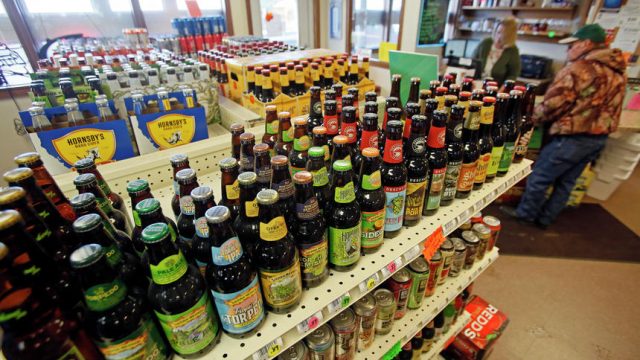Leave It to the Government to Lose Money Selling Booze

......like Fire Hall Liquors in Barnesville, Minn. David Samson / The Forum
The booze industry is pretty resilient. At one point our nation literally had a constitutional amendment outlawing the sale of alcohol, but because demand for alcohol is relatively inelastic the result was a booming black market for criminal enterprises.
In that context, consider that somehow government-run liquor stores in Minnesota have been losing money. John Andrist mentions it in his post today, noting that a state law allowing city governments to run liquor stores supported in the past by the Farmer’s Union and the Nonpartisan League has run on hard times. The city governments are increasingly losing money on booze sales.
“Nearly one in four Minnesota cities with a municipal liquor store operated at a loss subsidized by local taxpayers last year, according to the state’s latest annual audit,” Tom Steward reports.
More:
The audit reveals that 45 out of the total of 195 cities in the liquor business reported a deficit in 2016, up from 34 cities the year before, an increase of about 25 percent of “munis” operating in the red. All but one (Savage) of the 45 cities losing money on muni liquor operations is located in Greater Minnesota.
Overall, statewide municipal liquor profits declined by eight percent or $2.1 million over the previous year, despite record sales. On-sale profits plummeted by almost 19 percent, while off-sale profits declined over 6 percent.
Under state law, 32 cities that have reported a loss in two of the last three years must hold a public hearing to discuss the future of their municipal liquor operations before November 17.
To be sure, alcohol sales are a competitive enterprise. Any given business can be undermined by another providing superior prices, services, and/or quality. That said, you’d think well-established businesses such as these, with the advantage of operating as an arm of the state, could compete well.
Except, they’re managed by government bureaucrats who are anathema to innovation and efficiency.
The story of these liquor stores illustrates two truths.
First, it’s that the government isn’t very good at managing businesses in a competitive marketplace.
Second, that taxpayers shouldn’t be exposed to the risks of government management of business.




